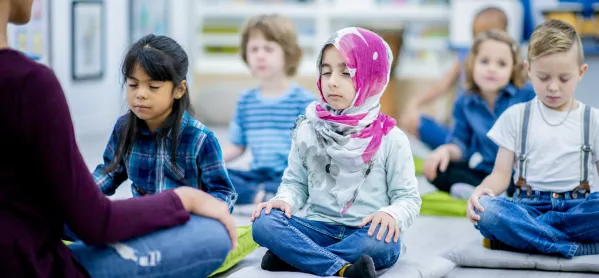- Home
- Want to boost pupil mental health? Focus on your staff
Want to boost pupil mental health? Focus on your staff

The lockdown has had a huge and profound effect on many children across the country.
In some cases, it has had a positive impact on children; families have spent more quality time together without having to balance extra-curricular activities, work and family commitments.
Then there’s the other side of the lockdown experience. A survey by children’s charity Barnardo’s suggests that at least a third of children and young people experienced an increase of mental health and wellbeing issues, including stress, loneliness and worry.
We have the same concerns here in East Manchester, where our multi-academy trust, The Wise Owl Trust (WOT), runs three primary schools serving communities with high social and economic disadvantage.
Many of our 1,400 children already have a lot to deal with in their lives, living in homes where they are already exposed to a range of adverse childhood experiences’ (ACEs) such as domestic violence.
An adverse experience
Our concern is that Covid-19 and the lockdown experience have exacerbated these ACEs and actually become an ACE in their own right, not only for our children but also for their families as well as our staff team.
Many of our colleagues are parents and they have been frantically spinning plates over the past three months.
They have been trying to balance the homeschooling of their own children and the pressure to keep life “normal” for them while constantly worrying about supporting the emotional and academic needs of their classes both in school and at home - and plan for the full reopening of our schools from September.
What is clear to us is that for the children to be supported to get through this time, these adults need to be in a really good place.
To have someone struggling with their own mental health does not put them in the right position to advocate positive mental health and mindfulness in our children.
At WOT, we have tried to give our staff a toolkit of strategies to draw upon.
Focusing the mind
Every single member of WOT’s 160 staff has now completed online mindfulness training. Staff have also had access to counselling sessions and anxiety training to educate them about the cause and effect of anxiety.
This has not only helped them to cope better but also to understand why they are feeling the way they are feeling - which, in turn, has helped them to deal with their emotions.
This is all before they begin working with the children to develop the children’s emotional resilience and different coping strategies that will help to allay their anxiety, feel safe and understand the experiences they have gone through during this period and focus on adapting to the “new norm”.
As a trust, we deliver daily mindfulness sessions with our children using a programme developed by Do-BeMindful that promotes self-awareness, self-regulation and resilience in teachers, parents and children.
The sessions contained content very similar to the ones we ran for staff. These include mindfulness listening and meditation sessions, mindfulness videos and breathing exercises and help to improve children’s concentration and attention span, and to promote the self-regulation of emotions.
Positivity in practice
The children love these sessions. One, an eight-year-old in Year 4, told us that she is using some of the strategies at home before bedtime and thinks that it has helped her to have a better night’s sleep as she had previously struggled to sleep over the lockdown.
Another said she has applied her learning when her older sibling annoyed her. Rather than getting angry, she used a mindfulness strategy to self-regulate her response. The fact these children shared this with us shows just how powerful these strategies are.
Our staff have also responded really positively to this support, saying that it has helped them to adjust and work through any stresses and anxieties they have.
Staff have also noticed an impact on the children who began returning in June, including an increase in concentration levels and how the children seemed to be more “classroom ready”.
This focus on wellbeing for staff and our children has already shown big benefits and it is something that we will remain focused on when all our pupils return from September.
We’re already planning to share our experiences with other community organisations and agencies across our city because we think that this emphasis on mindfulness can make a big difference to the lives of many more people.
Supporting our children in this way is absolutely vital. I think of the pandemic lockdown as a bit like a ticking timebomb: if we don’t do anything about it, there is the potential for an explosion of mental health issues six to 12 months down the line, which could have a life-long impact on our children.
Debbie Frater is teaching and learning lead at Wise Owl Trust, a growing multi-academy trust with three primary schools in East Manchester
Keep reading for just £1 per month
You've reached your limit of free articles this month. Subscribe for £1 per month for three months and get:
- Unlimited access to all Tes magazine content
- Exclusive subscriber-only stories
- Award-winning email newsletters
